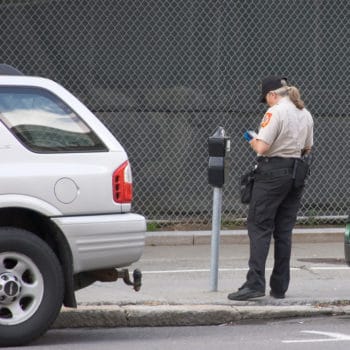
Careers in Law & Criminal Justice
The law and criminal justice field spreads over diverse specialisations including courts, law enforcement and corrections. Increasing urbanization and a steady population growth will lead to more types of job opportunities in this sector. If you are concerned about the safety and welfare of the public, finding a job here will be a great choice.
 Find Your Dream Career
Find Your Dream Career
Get all the details about specific careers in Law & Criminal Justice by clicking through below, and find the dream career that fits you best.
- Arbitrator
- Bail Bondsman
- Bailiff
- Casino Surveillance Officer
- Chief Risk Officer (CRO)
- Civil Rights Lawyer
- Conservation Officer
- Corporate Lawyer
- Correctional Counselor
- Correctional Officer
- Court Interpreter
- Court Reporter
- Courtroom Clerk
- Crime Scene Investigator
- Criminal Intelligence Analyst
- Defense Attorney
- District Attorney or Prosecutor
- Entertainment Lawyer
- Environmental Lawyer
- Estate Planning Lawyer
- FBI Agent
- Fire Investigator
- Forensic Scientist
- Fraud Investigator
- General Counsel
- Immigration Lawyer
- Judge
- Judicial Law Clerk
- Legal Assistant or Secretary
- Meter Maid
- Odontologist
- Paralegal
- Parking Enforcement
- Police Detective
- Prison Guard
- Public Defender
- Real Estate Lawyer
- Risk Management Director
- Serologist
- Tax Lawyer
- Toxicologist
- Translator
- Trial Attorney or Litigator
- U.S. Customs Inspector
 Choosing a Career in Law & Criminal Justice
Choosing a Career in Law & Criminal Justice
The latest trends show that job prospects for those interested in law enforcement and criminal justice will gradually expand in the next decade, at 5% by 2021. Many officers will be retiring from their existing positions in police services, leading to a demand for highly qualified professionals.
If you join federal criminal justice, work settings will include working at specific government agencies like the Department of Homeland Security, FBI, IRS, DEA, etc. By contrast, finding employment with federal law enforcement can vary widely, e.g. you may be tracking down a drug trafficking ring as a DEA agent, conducting research at a forensics lab, or working as a county sheriff at the sheriff’s department.
You can look into many career options. As a crime scene investigator, your job would be evaluating crime scenes and making observations alongside a team of detectives or police officers. By contrast, you would be working on court cases and taking on clients at a law firm, if you become a lawyer. You may become a parole officer if you like the challenge of working with criminal offenders and overseeing their rehabilitation into society.




